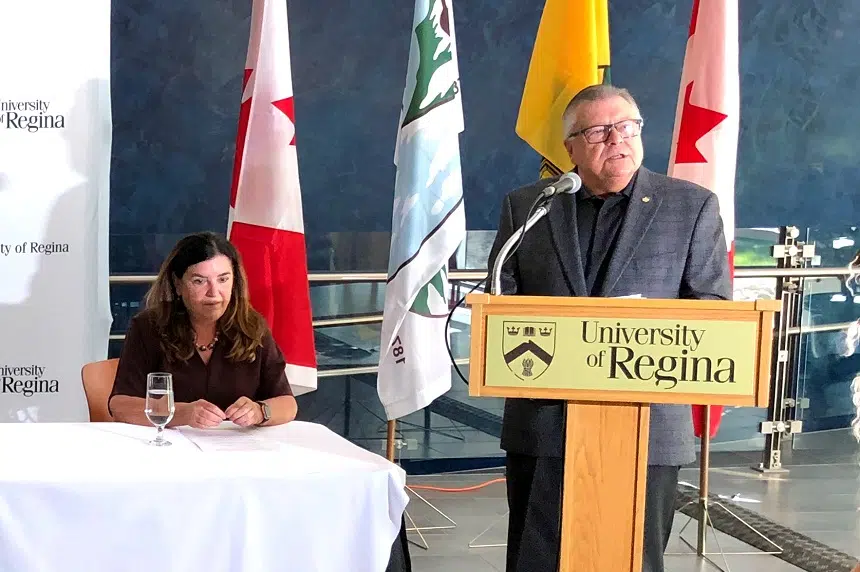The federal government is putting a big chunk of money toward helping Indigenous people with Fetal Alcohol Spectrum Disorder (FASD) get out of the legal system.
On Friday, Liberal MP Ralph Goodale announced $978,272 would go to the University of Regina for its project entitled Navigator-Advocates: Integrated Supports for Justice-Involved Indigenous Youth and Adults with Fetal Alcohol Spectrum Disorder.
The money is coming through the Indigenous Community Corrections Initiative.
“This partnership with the University of Regina will increase FASD-affected Indigenous offenders’ level of engagement and understanding of the system and of their disability, helping reduce their contact with the criminal justice system and make our communities safer,” Goodale said in a media release.
The project is about alternatives to custody and reintegration of the offenders. It’s expected to be supported by frontline workers and peer mentors with trauma and FASD-informed training; they’ll advocate for Indigenous offenders with FASD in Saskatchewan and the Yukon.
The university will partner with Indigenous organizations and stakeholders in the justice system and FASD community to develop “culturally relevant, community-based interventions that are responsive to the unique circumstances of Indigenous people.”
“Frontline workers and mentors will be helping to better meet the needs of justice-involved individuals and bring about real-world change in the lives of Indigenous people with FASD,” said Dr. Michelle Steward, an associate professor in the Faculty of Arts at the University of Regina.
“This low-barrier approach is but one of many responses needed if we are going to change the justice system and address ongoing inherent structural inequalities.”
This project will help fulfil one of the Calls to Action in the Truth and Reconciliation Report: To support FASD-affected Indigenous offenders involved in the legal system.
According to numbers provided by the federal government, Indigenous peoples in 2017-18 represented 24 per cent of the total federal offender populations.
Studies cited by the government show that 60 per cent of people with FASD come into contact with the legal system and 90 per cent live with mental health problems.











